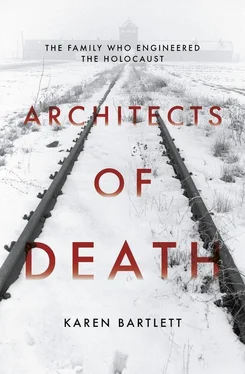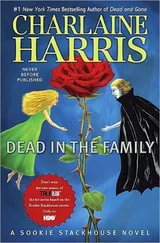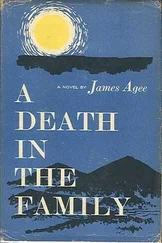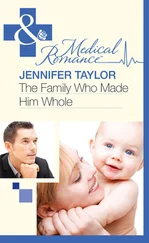Above all, Udo sensed that his authoritarian father was now a frightened man. ‘My mother told me that my dad went downstairs one day and saw a railway worker walking past wearing a uniform.’ Gustav Braun was now afraid of men in uniforms. ‘My dad ended up hiding behind a pillar. He was a completely broken man. My mother said: “What’s the matter with you? It’s just a railway worker.”’
Shortly after returning to Erfurt, Gustav Braun moved back to his home town of Heilbronn, where his eldest son Hans was living. Although Udo’s mother and younger brother also went to Heilbronn, Udo stayed behind in Erfurt – and began working for Topf and Sons as a fitter.
We didn’t talk much. It was simply impossible. There was no common ground. Later, he wrote to me from Heilbronn saying it wasn’t good enough for me to be just a fitter. So he sent me some formulae that he thought I could use in my career. Just imagine, he was a brilliant structural engineer himself – and he sent me these formulae and said I shouldn’t get married, even though my mother wanted me to get married because in communist East Germany getting married meant that the government would allocate you an apartment and furniture.
On occasions when they did meet, Udo felt that his father continued to torment him. One day when Udo was visiting his parents in Heilbronn, his father announced that he was going to take Udo out for an afternoon snack. This consisted of some sausage, bread and a quart of wine. Udo remembers the scene well:
I had grown up without drinking wine, so when he went to the toilet I got the sugar and put some into the wine. That was a mortal sin. When we got back home he said to my mother: ‘I won’t go out with this Rindvieh [moron] anymore. He doesn’t know how to behave.’ That was my father.
As the son of a Republikflüchtling (a refugee from East Germany), Udo Braun found himself persecuted by the authorities. Yet despite this, he worked his way up the company ladder until he held his father’s position at the company that was once Topf and Sons, but which had now been renamed VEB Erfurter Mälzerei- und Speicherbau (EMS).
On 11 May 1958, three years after his release, Gustav Braun died of cancer in Heilbronn. For Udo, his father’s death offered a chance to hold the kind of conversation that had never been possible during his lifetime:
A couple of years after he died, I went to the cemetery and talked to him. I said: ‘Father, we can end our war. I accomplished everything that you accomplished. Even a bit more than you did. You can be nice to me now. I have made up for what was lost.’ We worked in the same office without knowing it. First him as director and then me – years later – as head of production. That is quite ironic.
During his years living and working in what was then East Germany, Udo visited the camp at Buchenwald – and witnessed some of its horrors:
I have been to Buchenwald several times. Normally, I went with other employees from the company. It smelled very bad. Terrible. I saw the furnaces; terrible. There are images and the machinery… It is very moving and upsetting. It really does get to you. There is no room for laughter or for jokes. You can’t imagine it happening again – one couldn’t bear that. This is particularly true when you have not only seen Buchenwald, but also the pictures published by the media. Terrible, terrible things. Many people should see the camps, but, above all, it’s the sabre-rattlers who should make the trip. Buchenwald is horrifying.
Despite seeing this evidence with his own eyes, Udo says that he still struggles to accept the fact that his father, or Topf and Sons, were totally culpable – especially given his own long career with the company after the war.
I was an apprentice when I first heard about their having built the crematoria, or rather machines for the disposal of corpses, but I didn’t gather the extent of the measures taken to perfect the process. East Germany was not so keen on dwelling on the past. I only really began to understand it all later. I’ve always had problems, even to this day, with the apportionment of blame. Yes, the company built the furnaces and they shouldn’t have done that. They built the furnaces with German thoroughness –this is an enormous disgrace – but they also built good machines. Other machines. Good people participated, including skilled German craftsmen who built malting plants and silo facilities, some of which are still being used today. When I was working in a senior position at the company, I came across many Topf installations. This gave rise to a kind of inner conflict. The fact that Topf and Sons built those ‘perfectly efficient’ furnaces is very, very bad. But the Krupp steel and armaments company acted badly as well by building canons. And those who built other guns were bad, too. As were all the other people who supplied war materials. I cannot say that it was solely the fault of Topf and Sons. But what happened at Buchenwald was and remains atrocious.
Working for the renamed Topf and Sons after the war, Udo Braun found himself having to defend the company more frequently as the decades passed. On one occasion, a Jewish group told him they believed the company should be taken into Jewish hands – something Udo rejected.
It’s not a question of too much or too little culpability. I feel it’s like this: they built the furnaces and now everybody has come down on them. I took a senior position in the company afterwards and then we built our machines. History is a great burden for us… The allocation of blame had exceeded any limit. Everybody thought that they had to say something against us. This was very difficult for the subsequent employees who had played no physical part in constructing the furnaces. Our name was Erfurter Mälzerei und Speicherbau . But people kept saying: ‘Ah, these are the Topfs who built the furnaces.’ Why should this shame be heaped on us? We didn’t do anything wrong. Do you understand? That bothered me terribly… I am not capable of attributing the right amount of blame. There is always guilt if this kind of thing happens, but there has to be a limit to it.
Nor does Udo Braun accept his father’s personal role in developing the technology that fuelled the Holocaust.
‘I have always wondered why my father was attacked and dragged off, while the Topfs got away unscathed. They just went for Braun, Erdmann, Prüfer and Schulze. That doesn’t seem right to me.’ Later, he added:
You can accuse my father of being in charge of war defence within the company. The question of his guilt… in relation to the ovens, is something that I don’t see. His role in war defence – yes, he’s guilty where that’s concerned. But he played no part in the construction of the ovens.
History, however, takes a different view. After the fall of the Berlin Wall in 1989 and the collapse of communism in Eastern Europe, Gustav Braun’s conviction was reviewed again by the public prosecutor’s office of the Russian Federation in accordance with a new law ‘Governing the Rehabilitation of Victims of Political Repression’. After reviewing the files, the public prosecutor’s office reaffirmed the original charges against Kurt Prüfer, Karl Schultze and Gustav Braun, stating that all the men ‘were correctly convicted and are not eligible for rehabilitation’.
CHAPTER ELEVEN
POWER WITHOUT MORALS
‘No one in our company was guilty of anything at all, either morally or objectively. It is no empty phrase when I describe my company and the entirety of its conduct throughout the twelve years of the Hitler regime with the phrase: ‘Morality without Power.’
ERNST WOLFGANG TOPF, 1958
[132] E. W. Topf’s response to Power without Morals, 1958. Landesarchiv Thüringen - Hauptstaatsarchiv Weimar.
Despite lengthy wrangling, Topf and Sons of Erfurt officially passed out of Topf family hands on 10 May 1947, when it became a stateowned enterprise and no compensation was awarded to its former owners. On 1 June 1948, sequestered companies in the area of Soviet occupation were deemed ‘people-owned’ – and renamed VEB.
Читать дальше












